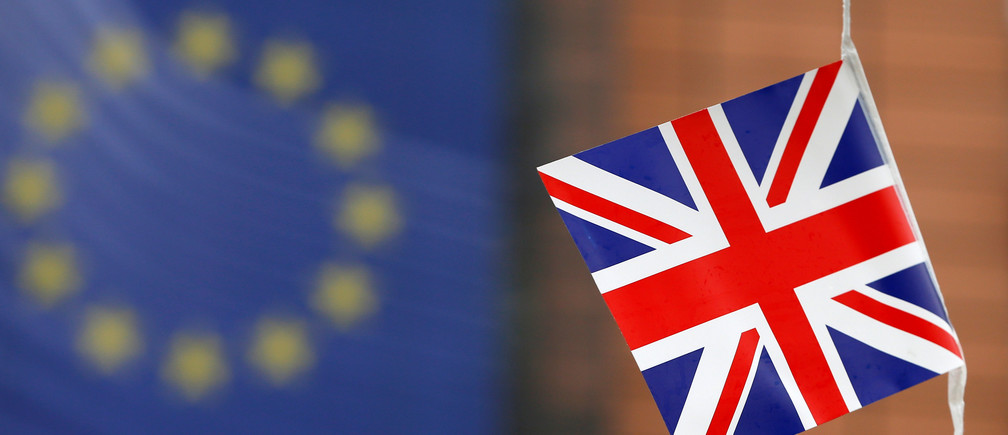How should the European Union respond to the narrow decision by voters in the United Kingdom to leave? European leaders are now focusing, rightl
How should the European Union respond to the narrow decision by voters in the United Kingdom to leave? European leaders are now focusing, rightly, on how to prevent other countries from leaving the EU or the euro. The most important country to be kept in the club is Italy, which faces a referendum in October that could pave the way for the anti-euro Five Star Movement to take power.
Europe’s fear of contagion is justified, because the Brexit referendum’s outcome has transformed the politics of EU fragmentation. Before, advocates of leaving the EU or euro could be ridiculed as fantasists or denounced as fascists (or ultra-leftists). This is no longer possible.
Brexit has turned “Leave” (whether the EU or the euro) into a realistic option in every European country. Once Britain gives the Union formal notice (by invoking Article 50 of the Treaty of Lisbon), that option will enter the mainstream of political debate everywhere. Research by the European Council on Foreign Relations has found 34 anti-EU referendum demands in 18 other countries. Even if each of these challenges has only a 5% chance of success, the probability of at least one succeeding is 83%.
Can the genie of disintegration be put back in its bottle? The EU’s breakup may well prove unstoppable once Britain leaves; but Britain has not yet invoked Article 50. The bottle could still be sealed before the genie escapes.
Unfortunately, Europe is using the wrong threats and incentives to achieve this. France is demanding that Britain accelerate its exit. Germany is playing the “good cop” by offering access to the single market, but only in exchange for immigration rules that Britain will not accept. These are exactly the wrong sticks and carrots.
Instead of rushing Brexit, Europe’s leaders should be trying to avert it, by persuading British voters to change their minds. The aim should not be to negotiate the terms of departure, but to negotiate the terms on which most British voters would want to remain.
An EU strategy to avoid Brexit, far from ignoring British voters, would showgenuine respect for democracy. The essence of democratic politics is responding to public dissatisfaction with policies and ideas – and then trying to change the judgment of voters. That is how numerous referendum outcomes – in France, Ireland, Denmark, the Netherlands, Italy, and Greece – have been reversed, even when deeply emotional issues, such as abortion and divorce, were involved.
If European leaders tried the same approach with Britain, they might be surprised by the favorable response. Many Leave voters are already having second thoughts, and Prime Minister Theresa May’s uncompromising negotiating position will paradoxically accelerate this process, because voters now face a much more extreme version of Brexit than they were promised by the Leave campaign.
May has stated unequivocally that immigration control is her over-riding priority and that Norway or Switzerland can no longer be models for Britain’s relationship with the EU. Her new “Brexit Ministry” has defined Britain’s main objective as tariff-free access to Europe and free-trade agreements with the rest of the world. That means abandoning the interests of Britain’s financial and business services, because services are unaffected by tariffs and are excluded from most free-trade deals.
As a result, the new government will soon be politically vulnerable. In fact, most British voters already disagree with its negotiating priorities. Post-referendum polls show voters giving priority to single-market access over immigration restrictions by a two-to-one margin or more.
Making matters worse for May, her slender parliamentary majority depends on disgruntled “Remain” rivals. As the British economy sinks into recession, trade deals prove illusory, and legal and constitutional obstacles proliferate, May will find it hard to maintain the parliamentary discipline needed to deliver Brexit.
A strategy to avert Brexit therefore has a good chance of success. The EU could advance this strategy by calling May’s bluff on “Brexit means Brexit.” May should be told that only two outcomes are possible: either Britain loses all single-market access and interacts with Europe solely under World Trade Organization rules, or it remains an EU member, after negotiating reforms that could persuade voters to reconsider Brexit in a general election or a second referendum.
This binary approach, provided EU leaders showed genuine flexibility in their reform negotiations, could transform public attitudes in Britain and across Europe. Imagine if the EU offered constructive immigration reforms – for example, restoring national control over welfare payments to non-citizens and allowing for an “emergency brake” on sudden population movements – to all members. Such reforms would demonstrate the EU’s respect for democracy in Britain – and could turn the tide of anti-EU populism across northern Europe.
The EU has a long history of adapting in response to political pressures in important member states. So why is this strategy not being considered to counter the existential threat of Brexit?
The answer has nothing to do with supposed respect for democracy. The Brexit vote is no more irreversible than any other election or referendum, provided the EU is willing to adopt some modest reforms.
The real obstacle to a strategy of persuading Britain to remain in the EU is the EU bureaucracy. The European Commission, once the EU’s source of visionary creativity, has become a fanatical defender of existing rules and regulations, however irrational and destructive, on the grounds that any concessions will beget more demands. Concessions to British voters on immigration would inspire the southern countries to demand fiscal and banking reforms, eastern countries would seek budget changes, and non-euro countries would demand an end to their second-class status.
The Commission is right to believe that demands for EU reform would extend well beyond Britain. But is this a reason to resist all change? That type of rigidity broke up the Soviet Union and nearly destroyed the Catholic Church. It will destroy the EU if the bureaucracy remains incapable of reform.
It is time for Europe’s politicians to overrule the bureaucrats and re-create a flexible, democratic EU capable of responding to its citizens and adapting to a changing world. Most British voters would be happy to remain in that kind of Europe.
World Economic Forum


